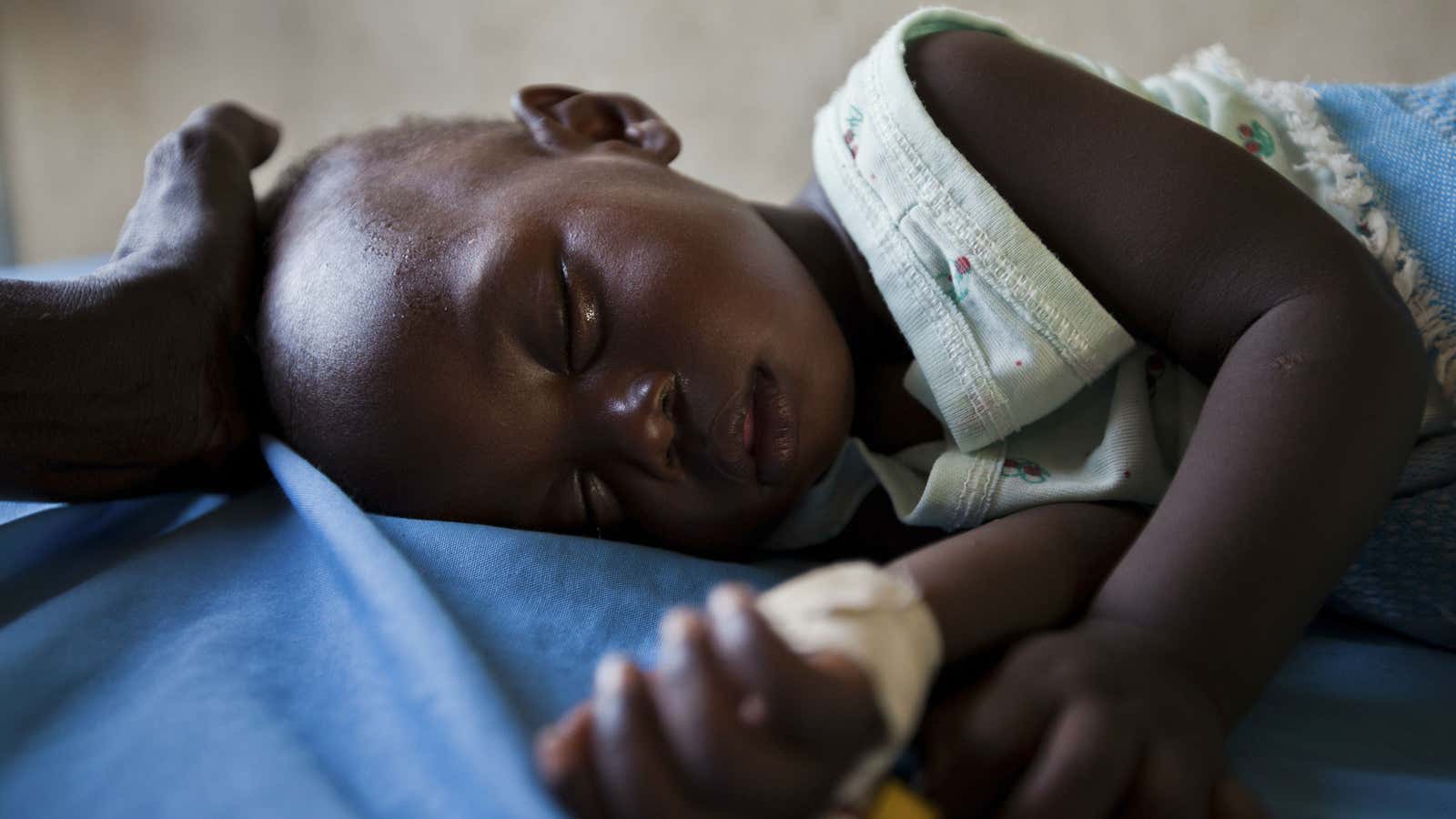The growing Zika pandemic has quickly become a serious threat for pregnant women, who are at risk of contracting the virus and whose fetuses can develop serious conditions, such as microcephaly. The speed at which the epidemic has spread has world leaders up in arms with plans to fight the virus, which include taking away funds from research on other serious conditions (remember Ebola?).
Zika isn’t the most dangerous infectious disease to affect a pregnant woman. Measles puts both mother and fetus at risk if caught during pregnancy, increasing risk of spontaneous abortion and stillbirth, and of complications for the mother’s health. More dangerous still is malaria—particularly considering the size of the epidemic, which affects 200 million people worldwide.
Malaria infection during pregnancy can lead stillbirth and cause serious complications for maternal and newborn health, as a consequence of placental infection and severe anemia of both fetus and mother. According to UNICEF, malaria during pregnancy is responsible for 20% of all stillbirths in Sub-Saharan Africa. Malaria in pregnancy kills an estimated 10,000 mothers and 100,000 newborns globally.
Unlike Zika, however, there are treatments that can be administered to a pregnant woman during a malaria infection that can drastically reduce risks for her health and her baby’s. A combination of a preventive malaria therapy with consistent use of insecticide treated bed nets has proven effective in reducing the risks for both mothers and children. According to WHO, such a combination has reduced (pdf) severe maternal anemia, low birthweight and neonatal mortality of a third.
Yet intervention is still insufficient, especially in Sub-Saharan Africa, the most vulnerable area to malaria infections. While some countries, including Gambia, Ghana, Senegal and Zambia, have administered preventive therapy to 60% of pregnant women, the region is stuck at 24%, and only 38% women in the area sleep under bed nets.
This is particularly important considering the progress made against malaria: Counterintuitively, a study published in the New England Journal of Medicine found that the adverse consequences of malaria infection on women worsen when there is a general decline in malaria infection, because reduced exposure effects immunity.
